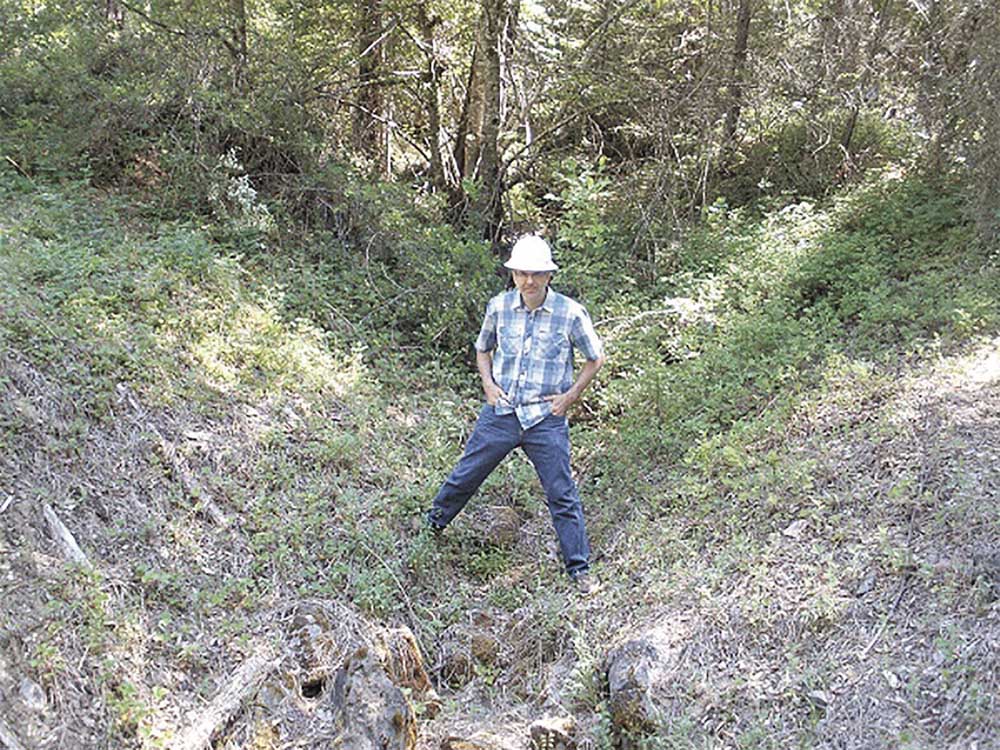Bentz speaks out against River Democracy Act on House floor
Published 8:00 am Thursday, January 13, 2022

- Andy Geissler, federal timber program director for the American Forest Resource Council, is seen in this file photo. Geissler and the American Forest Resource County, along with a coalition of Eastern Oregon counties, are attempting to intervene in a federal lawsuit that could reimpose a ban on logging large trees in six national forests.
WASHINGTON — Oregon Rep. Cliff Bentz, R-Ontario, denounced the River Democracy Act on the House floor Tuesday, Jan. 11, saying the legislation that would label 4,700 miles of waterways as “Wild and Scenic” would instead leave them “just waiting to be burned and ruined.”
“The overwhelming majority of my 62 county commissioners have serious and unanswered concerns about the dangers the act presents,” Bentz, a freshman congressman, said during his floor speech. “Chief among them is that this designation will prevent what needs to be done to protect these watersheds, placing them in a bureaucratic wasteland where it will take years, if not decades, to initiate and then complete plans that may or may not allow the treatment activities needed right now.”
Trending
Bentz noted that with a mile-wide corridor — a half-mile on each side of the designated areas — being marked Wild and Scenic, the area cordoned off, 4,700 square miles, would be about the size of Connecticut.
Bentz said the bill would allow just one method of fire prevention — prescribed burning — which he contended would actually increase the threat of fires.
“I cannot emphasize enough how dangerous it is to use prescribed burns in overgrown, densely packed, dry forests without thinning the forest first,” he said. “Prescribed burning before thinning puts at extreme risk the very rivers and watersheds the designation is supposed to protect. It is like dropping a match in a tinderbox. It is impossible to contain these types of fires once they start.
“The River Democracy Act, if passed, would threaten watersheds, homes, businesses, farms, ranches, livestock and, most importantly, human lives.”
Bentz also denounced the bill for not containing “explicit protections” for uses of the land, including, “sustainable timber harvests, hunting, grazing, fishing and mining.”
“Regardless of legislative intent, the applicable agencies will have broad authority to restrict these activities,” he said.
Trending
Local, regional disapproval
The RDA, introduced last year by Sen. Ron Wyden and backed by Sen. Jeff Merkley, both Oregon Democrats, has been condemned by several county commissioners in Eastern Oregon.
Wallowa County commissioners have opposed the RDA on multiple occasions, and have said about 404 miles in their county would fall under the new designation.
They also wrote an October 2021 letter to Wyden voicing their disapproval of a lack of detailed maps outlying the affected waterways.
“The maps your office provided were not clear so the county went to the expense of having maps made that included half-mile buffers,” they wrote. “These maps gave a visual of the buffers, affecting economic viability for our timber and grazing economies, public access and forest management on an estimated 240,000 acres of public lands and 16,000 acres of adjacent private land in Wallowa County.”
Union County commissioners voted in October to send a letter to Wyden asking him to remove the roughly 135 miles of waterways in their county from the act. Part of their issue with the RDA, they said, was that methods in place for designating rivers as Wild and Scenic were not adhered to.
“This failure to follow the guidelines that have been in place since 1968 as a well-vetted system for designation is resulting in waterways that do not meet the criteria, spirit, intent or letter of the Wild and Scenic Act,” according to the letter sent to Wyden.
Grant County commissioners have also sought to opt out of the RDA.
“Prohibiting access to minerals that are necessary for creating green energy runs counter to the principles of conservation,” they wrote in a November letter opposing the RDA. “In this respect, Sen. Wyden’s proposal is fundamentally anti-environmental.”
The River Democracy Act also came under criticism in June for including waterways that were “completely dry upon inspection.” The American Forest Resources Council, which represents the timber industry, said just 15% of the waterways are designated as rivers.
Senate Bill 192, which was introduced Feb. 3, 2021, has been before the Committee on Energy and Natural Resources Subcommittee on National Parks, according to congress.gov. It has yet to receive a vote on the House or Senate floor.
— Information previously published by the Capital Press, The Observer, Wallowa County Chieftain and Blue Mountain Eagle was used in this report.









